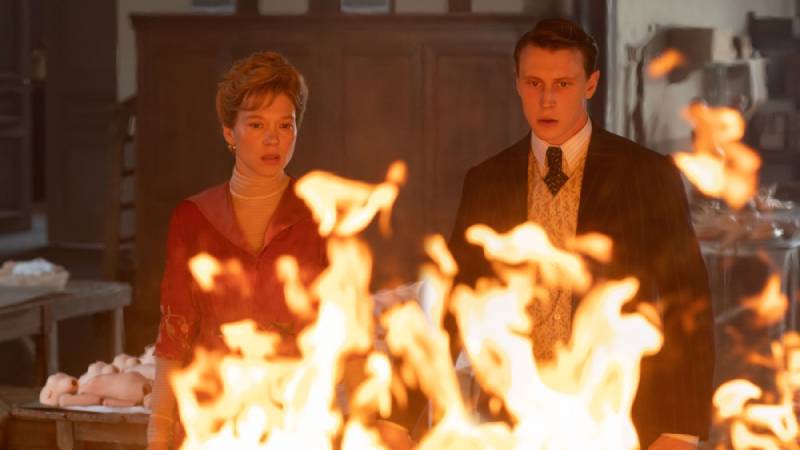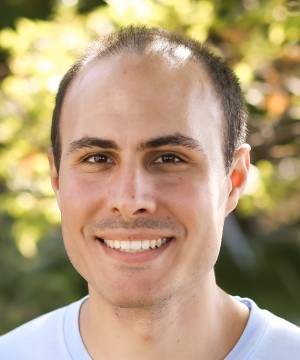




One of contemporary French Cinema’s most exciting provocateurs, Bertrand Bonello has cultivated a knack for confidently melding potentially incongruous genres into a recognizably pervasive strain of dread. His new film The Beast is possibly his boldest work yet, as intellectually rigorous as it is stylistically dazzling in its three historically discrete but thematically linked tales of l’amour fou between a couple spanning across a century and two continents.
The would-be lovers bear the same names in their separate lives: Gabrielle (Léa Seydoux) and Louis (George MacKay), whose paths first cross in early 20th Century Europe. Their chance encounter in Paris sparks a kinship where she confides in him a latent fear of some unknown catastrophe that will befall her. The central premise, inspired by Henry James’ 1903 novella The Beast in the Jungle, extends to 2014 where Gabrielle is now a struggling actress in Los Angeles and Louis is the thinly veiled double of Elliot Rodger, whose misogynist social media vlogs culminated in six murders near the University of California. These past tragedies are revisited by another Gabrielle in 2044, when artificial intelligence has transformed human society into sterile uniformity by genetically removing our most intense emotions.
Bonello’s ambitious adaptation confidently navigates disparate tones, from tender romanticism to dystopian horror. What unites the various historical threads of The Beast is a canny eye for the ways social anxiety has manifested in the modern western world. The 1910 floods of Paris play a crucial role in the film’s overtly Jamesian sequences, but Bonello is fully aware of any present-day parallels to the immediate threat of climate change as Gabrielle and Louis ponder the existence of a submerged Paris in the future.

The 2014 section is the film’s trickiest, mining oppressive suspense as both characters grow progressively alienated by the normative demands of American patriarchal capitalism. If this portion of The Beast risks simplifying a fraught sociopolitical dynamic, Bonello maintains his balance by reminding us of the irreconcilability of his characters’ repressed desires and the complex societal conditions which commodify those yearnings.
The film’s cerebral preoccupations may alienate certain audiences just for their audacity alone. Their intriguing ramifications are amplified by the fearless performances from its central cast. Gabrielle’s self-described intuitiveness equally applies to Seydoux’s abilities as an actor, yielding a continuity between three distinct iterations of the same lonely soul. MacKay has the showier part, adopting different accents and languages as the unrequited object of Gabrielle’s ardor. Both actors navigate the slippery nature of identity in a historical chronology where the tentative uncertainty of modernism gives way to total atomisation in a post-postmodernist non-existence.
Both Seydoux and MacKay are aided by cinematographer Josee Deshaies’ cunning deployment of encroaching close-ups and ominous negative space, as well as production designer Katia Wyszkop’s spectacular reproduction (and, in the 2044 portions, pastiche) of period-specific sets. The gradual effacement of personalised space, down to a bitingly satirical pair of scenes in a green-scene set, visually evinces a communal retreat from a general consensus around what constitutes the “real”. For Bonello, that term encompasses historical, political, and romantic dimensions, and our willing abnegation of personal stakes within those dimensions provides a catastrophe even Henry James could not have anticipated. And like James’ novella, the existential horror of our collective predicament suggests the possibility that this catastrophe has already taken place.
The Beast shows at the 61st New York Film Festival, at the 67th BFI London Film Festival, and also at the 53rd International Film Festival Rotterdam. It premiered in Venice.











